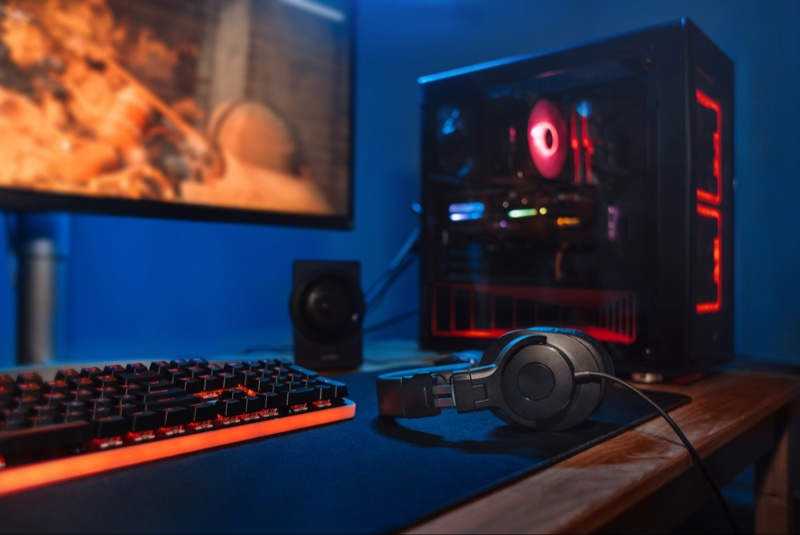Investing in a gaming PC is a significant decision that can transform your gaming experience. With numerous options available, selecting the right components and features can be overwhelming. This comprehensive guide provides essential tips and insights to help you make an informed decision, ensuring you buy a gaming PC that meets your performance needs and budget.
Understanding Your Gaming Needs
Before purchasing a gaming PC, it’s crucial to understand your specific gaming needs. Consider the types of games you play, as different genres have varying hardware requirements. AAA titles and VR games demand high-performance components, while indie and less graphically intense games may require less power. Understanding your gaming preferences helps you determine the necessary specifications and ensures you invest in a PC that delivers the desired gaming experience.
Setting a Budget
Setting a budget is a fundamental step in the process of buying a gaming PC. Gaming PCs can range from budget-friendly options to high-end rigs costing thousands of dollars. Determine how much you are willing to spend and prioritize essential components such as the CPU, GPU, and RAM. Allocating your budget wisely ensures you get the best performance for your money without overspending. Setting a clear budget helps narrow down your options and makes the selection process more manageable.
Choosing the Right CPU
The central processing unit (CPU) is the brain of your gaming PC, impacting overall performance and gameplay experience. Popular choices for gaming PCs include Intel’s Core i5, i7, and i9, and AMD’s Ryzen 5, 7, and 9 processors. A higher core count and faster clock speeds enhance multitasking and gaming performance. For gaming, a mid-range CPU like the Intel Core i5 or AMD Ryzen 5 is often sufficient, but for streaming and content creation, consider a more powerful processor. Choosing the right CPU ensures smooth gameplay and efficient performance.
Selecting the Best GPU
The graphics processing unit (GPU) is arguably the most critical component in a gaming PC, responsible for rendering images, animations, and video. NVIDIA and AMD are the leading GPU manufacturers, with NVIDIA’s GeForce RTX series and AMD’s Radeon RX series being popular choices. A higher-end GPU provides better graphics, higher frame rates, and supports advanced features like ray tracing. When selecting a GPU, consider the resolution you plan to game at (1080p, 1440p, 4K) and the frame rates you desire. Choosing the best GPU ensures an immersive and visually stunning gaming experience.
Determining the Amount of RAM
Random Access Memory (RAM) is essential for smooth multitasking and quick loading times in games. For gaming PCs, 16GB of RAM is generally recommended, providing ample memory for most modern games and applications. However, 32GB can offer a performance boost and future-proofing for more demanding games and multitasking needs. Ensure the RAM has a high clock speed and low latency for optimal performance. Determining the right amount of RAM helps you avoid bottlenecks and ensures a seamless gaming experience.
Selecting the Right Storage Options
Storage is crucial for both speed and capacity in a gaming PC. Solid State Drives (SSDs) offer faster load times and boot speeds compared to traditional Hard Disk Drives (HDDs). A combination of a smaller SSD for the operating system and frequently played games, and a larger HDD for additional storage, is a common setup. NVMe SSDs provide even faster data transfer rates than SATA SSDs. Selecting the right storage options ensures quick access to your games and smooth overall system performance.

Choosing the Right Motherboard
The motherboard is the backbone of your gaming PC, connecting all components and ensuring they work together seamlessly. When choosing a motherboard, consider compatibility with your CPU and GPU, the number of RAM slots, and support for future upgrades. Features like built-in Wi-Fi, Bluetooth, and USB ports can add convenience. Ensure the motherboard has good power delivery and cooling solutions to maintain stable performance. Choosing the right motherboard ensures your gaming PC is robust, versatile, and capable of future upgrades.
Evaluating Power Supply Units (PSUs)
The power supply unit (PSU) provides the necessary power to all components of your gaming PC. It’s crucial to choose a PSU with adequate wattage to support your system, considering future upgrades. PSUs come with various efficiency ratings, with 80 PLUS Bronze, Silver, Gold, Platinum, and Titanium indicating their efficiency levels. A higher-rated PSU is more efficient and reliable. Ensure the PSU has the necessary connectors for your components and offers stable power delivery. Evaluating PSUs ensures your gaming PC runs efficiently and safely.
Considering Cooling Solutions
Effective cooling is vital to maintaining optimal performance and prolonging the lifespan of your gaming PC components. Cooling solutions include air cooling, liquid cooling, and case fans. High-performance CPUs and GPUs generate significant heat, requiring robust cooling systems. Air coolers are budget-friendly and effective, while liquid coolers offer superior cooling performance and are quieter. Additionally, ensure your PC case has good airflow with sufficient intake and exhaust fans. Considering cooling solutions ensures your gaming PC remains cool and stable during intense gaming sessions.
Choosing a Suitable Case
The PC case houses all your components and impacts cooling, aesthetics, and expandability. Cases come in various sizes: Full-Tower, Mid-Tower, and Mini-Tower, each offering different space for components and cooling solutions. Consider the case’s build quality, cable management options, and ease of installation. Look for cases with good airflow design and dust filters to keep your system clean. Additionally, choose a case that aligns with your aesthetic preferences, whether you prefer a minimalist design or RGB lighting. Choosing a suitable case ensures your gaming PC is functional, visually appealing, and easy to maintain.
Exploring Peripheral Options
Peripherals such as monitors, keyboards, mice, and headsets significantly impact your gaming experience. High-refresh-rate monitors (144Hz, 240Hz) with low response times provide smoother gameplay. Mechanical keyboards offer better tactile feedback and durability, while gaming mice with adjustable DPI settings enhance precision. A good-quality headset provides immersive audio and clear communication. Exploring peripheral options ensures your gaming setup is complete and enhances your overall experience.
Future-Proofing Your Gaming PC
Future-proofing involves selecting components that will remain relevant and capable of handling future games and applications. Investing in a higher-end CPU and GPU, sufficient RAM, and a quality PSU can extend the lifespan of your gaming PC. Additionally, choose a motherboard that supports future upgrades, such as additional RAM and newer GPUs. Future-proofing your gaming PC ensures it remains powerful and capable for years to come, providing long-term value and performance.
Buying a gaming PC involves careful consideration of various components, from the CPU and GPU to RAM and storage options. Understanding your gaming needs, setting a budget, and evaluating each component ensures you build a system that delivers exceptional performance and value. By investing in high-quality parts and considering future-proofing, you can create a gaming PC that provides a superior gaming experience and remains relevant for years. Whether you’re a casual gamer or a hardcore enthusiast, this guide provides the essential information to help you make the best choice for your gaming setup.




